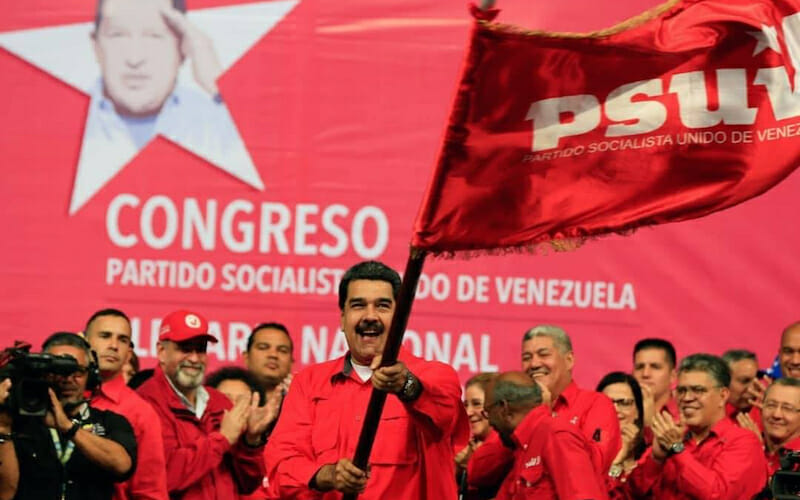
Traditional Fantasies: U.S. Designs on Venezuela
The irresistible allure of invasion and interference has never been far from US lawmakers. The imperium needs its regular feed and what a feed it has been over the decades, notably within the sphere of influence discomfortingly termed “Washington’s backyard.” The current US president has shown himself a keen follower of the idea that the US military, that old, and not yet diminished strongman of capitalism, might come into play to rid Washington of various irritations in Latin America. Venezuela has featured very highly in that regard.
It was Venezuela’s Chávism that turned so many policymakers off in Washington, spurred on by an attempt to quell what Dan Beeton and Alexander Main described as “Latin America’s resistance to the neoliberal agenda.” Any policy reeking of poverty alleviation tends to set bad precedents for those in the United States. The poor must be kept in docile ignorance of their lot as the money is made.
Interest in Venezuela has verged between cognisance and complicity. In 2002, when dissident military officers and members of the opposition in Venezuela were chewing over the prospects of a potential coup against President Hugo Chávez, the Central Intelligence Agency swooned: this more than mildly disruptive man might be on his way out. And he was, if only briefly, returning to power on April 14 emboldened and popular.
The Agency noted then that “disgruntled senior officers and a group of radical junior officers are stepping up efforts to organize a coup against President Chávez, possibly early as this month.” The level of detail, and insight into the mind of the plotters, was extensive. Those involved would attempt to “exploit unrest stemming from opposition demonstrations slated for later this month.” The response from the Bush administration was a plea of ignorance: the leader had brought it all upon himself.
The Latin America WikiLeaks files go further, showing the habitual nature of Washington’s interference in the internal affairs of countries in the region. They show threats and cajoling to left-wing populist government figures, and logistical support for right wing dissenters wishing to cause mayhem. As one cable noting the words of the US ambassador to Bolivia, David L. Greenlee, goes, “When you think of the IDB (International Development Bank), ‘you should think of the US.’” Not that this was “blackmail,” continues the ambassador. This was “simple reality.” President Evo Morales had been put on notice.
The campaign against Caracas over time has been characterised by variously fashioned weapons, most notably sanctions. Destroy the economy, and you foment the basis for reaction. These have been weapons of choice for the policy planners in Washington, featuring such blows as those against the state oil company PDVSA in 2011 and the state arms manufacturer CAVIM in 2013. The following year, specific government officials were also targeted.
In 2017, Trump added his little cameo in entertaining options for overthrowing the Maduro government. This was yet another example of Trump as the apotheosis, high-water mark of US aggression, outing the nastier habits of the imperium. No soft treading required, nor the graceless posture of non-interference, just an open use of force with charging marines.
Statements in August about an outright invasion were coupled with other possibilities. As he told his staff, “We have many options for Venezuela and by the way, I’m not going to rule out a military option.” Then secretary of state Rex Tillerson was perplexed; then national security adviser H.R. McMaster recoiled. The next day, Trump elaborated his views at his New Jersey golf course at Bedminster: “We’re all over the world and we have troops all over the world in places that are very, very far away, Venezuela is not very far away and the people are suffering and dying. We have many options for Venezuela including a possible military option if necessary.”
When these suggestions made the light of day, they were treated as acts of dizzy lunacy, the fantasies of an insane steward of empire. As José Miguel Vivanco, America’s director for Human Rights opined on August 11, “No one had helped Maduro as much as Trump and this nonsense that he said today.”
Republican Senator Marco Rubio of Florida has been the latest voice to join an already heavily laden bandwagon, giddy from the rum of democracy he hopes to export. In an interview with Univision 23 in Miami, he explained how he had for years “wanted the solution in Venezuela to be a non-military and peaceful solution, simply to restore democracy.” While the US armed forces “are only used in the event of a threat to national security,” an argument could be made “at this time that Venezuela and the Maduro regime has become a threat to the region and even to the United States.”
Such fairy floss logic barely withstands scrutiny, taking the issue of desperation within Venezuela as the starting point for regional instability and threat to US security, an instability, it should be added that has not been helped by the more than occasional fiddle by US authorities.
This fantasy of military backed intervention comes with a slight twist: the comments from Rubio grudgingly acknowledged the prospects of a multilateral negotiated transition, one that might permit perpetrators to get away in a new Venezuelan order. “We’ll have to bite our lips a little bit and watch a solution that has perhaps some form of forgiveness.” Ever the sentiment of the imperial brute, appropriating the means of molestation, punishment and ultimate forgiveness.
